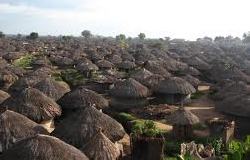Corruption: UK switches aid to UNHCR
By John Stephen Katende
14th Jan 2013
The British government has pledged to provide emergency aid for the 50,000 refugees in Uganda who have so far fled the conflict in eastern Democratic Republic of Congo.
However, in what appears to be a reaction to the recent high profile theft of donor funds from the Office of the Prime Minister, (under which disaster preparedness ministry falls) the UK government has decided to channel its aid money through the United Nations High Commissioner for Refugees (UNHCR).
The UK’s International Development Secretary Justine Greening announced the emergency aid while calling on other donors to step up their support immediately. The new package of support will deliver health care, education, shelter and safe drinking water for families who have been forced to find refuge over the border.
The emergency assistance from the UK will ensure that the United Nation’s Refugee Agency (UNHCR) can continue to provide a vital lifeline of shelter and relief to refugees in western Uganda for the next three months.
Britain’s assistance will include providing temporary shelter, household items, blankets, and sleeping mats for more than ten thousand refugees. The money will also ensure that refugee children have access to basic primary education, primary health care, and at least 15 litres of clean water per day.
“…Our aid will help thousands of refugees who have fled conflict to get the basic help they need to survive.” Justine Greening said. “We must act now to prevent this crisis from deteriorating into a full blown emergency.”
In spite of the apparent move to avoid handing millions of dollars of donor funds to corrupt Uganda government officials, Ms Greening was at pains to point out that Britain “…will continue to work with Uganda, Rwanda and DRC to secure a peaceful resolution.”
She also called on other donors to join hands with her government. “…It is vital that the whole international community comes together to help people to rebuild their lives and return home.” Ms Greening said.
More than 55,000 refugees are estimated to have fled eastern Democratic Republic of Congo (DRC) to Uganda – of which almost two thirds are children. Many of these are now living in settlements across Uganda, including the Rwamwanja camp in the Kamwenge District, where more than 28,000 refugees are staying.
A further 10,000 refugees are staying with host families in Kisoro town. If the ongoing peace talks between the DRC government and the M23 rebels fail and fighting resumes, then more civilians could be forced to seek refuge in Uganda’s border towns. END: Login to www.ugandacorrespondent.com every Monday to read our top stories mid-week for our updates.
![]()


